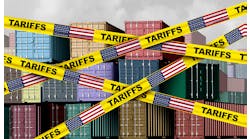Trade Logistics Gap Persists Between Developed and Developing Countries
A more advanced economy translates to better trade logistics. That is the conclusion of a report, “Connecting to Compete,” from the World Bank Group. The report, which contains the Logistics Performance Index (LPI), is a bi-annual report that scores 168 countries on how efficiently supply chains connect firms to domestic and international opportunities.
Across the board, most countries have pursued logistics-related reforms and investments to build infrastructure, facilitate transportation and trade, or develop modern services.
Despite this progress, the survey reveals a mixed picture. High-income countries score, on average, 48% higher than low-income countries when it comes to logistics performance.
“Logistics services are the backbone of international trade," explains Caroline Freund, director of the Macroeconomics, Trade & Investment (MTI) Global Practice at the World Bank Group. “Good logistics reduce trade costs, but supply chains are only as strong as their weakest link. For developing countries, getting logistics right means improving their infrastructure, customs, skills and regulations.”
The 2018 LPI highlights emerging concerns with the resilience of supply chains, their environmental footprint, and the need for qualified workers:
1. A logistics labor shortage poses a challenge for both developed and developing countries alike. Developing countries seek more managerial-level workers, while developed countries face a shortage of blue-collar workers, such as truck drivers.
2. High-income countries are more likely than low-income countries to be increasing their preparedness to cyber threats.
3. High-income countries are more likely than low-income countries to seek logistics services that are environmentally friendly. This is important because CO2 emissions from transport are a significant contributor to pollution.
Germany has the highest aggregate score over the past four LPI editions. High-income countries that are dominant players in the supply chain have ranked highest in logistics performance. Countries that rank lowest tend to be those that are low-income, isolated, fragile, or facing conflict or unrest. Among the lower-middle income group countries, large economies such as India and Indonesia and emerging economies such as Vietnam and Cote d'Ivoire stand out as top performers.
“With international trade becoming more dispersed through global value chains, good logistics are more important than ever. Small disruptions to a supply chain can spread rapidly to other countries and regions,” says Christina Wiederer, economist with the World Bank Group’s Macroeconomics, Trade & Investment Global Practice and report co-author.



